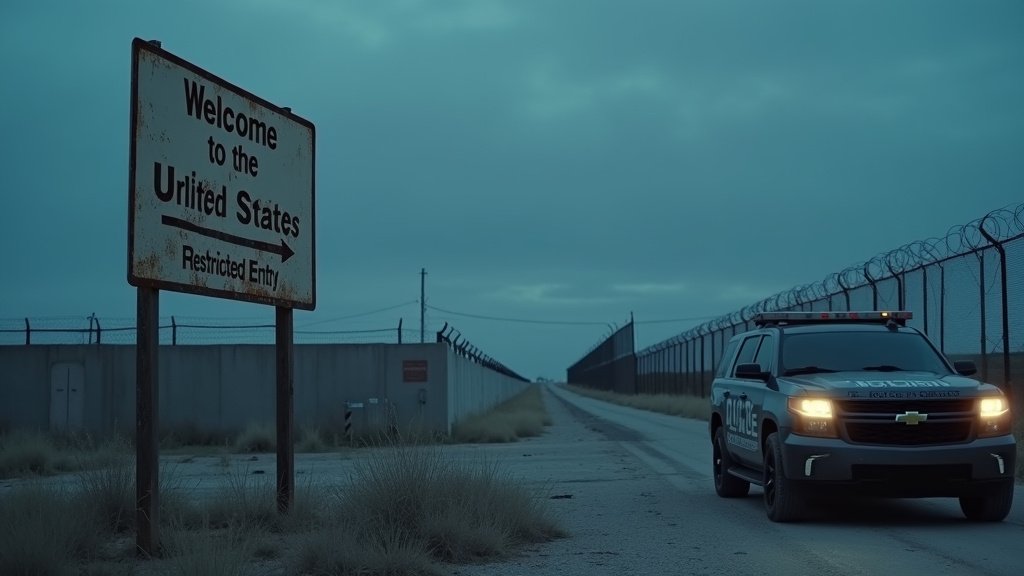Recent intensified immigration enforcement actions by U.S. Immigration and Customs Enforcement (ICE) are creating significant uncertainty across key American industries, particularly within the agriculture, hotel, and restaurant sectors. These raids are also reportedly deterring foreign-born workers crucial to these industries, raising concerns about potential labor shortages at a time of low national unemployment.
The enforcement surge follows a period of wavering federal policy. Last week, President Donald Trump briefly ordered a pause in these immigration raids, explicitly acknowledging the dependence of industries like farming and hospitality on immigrant labor. However, this pause proved short-lived, as the directive was quickly reversed, signaling a continued aggressive stance on immigration enforcement.
Government Stance and Industry Concerns
The administration’s position was underscored by Assistant Secretary of the Department of Homeland Security, Tricia McLaughlin. Speaking on the matter, McLaughlin issued a firm warning to businesses, stating, “There will be no safe spaces for industries who harbor violent criminals or purposely try to undermine ICE’s efforts.”
This assertion suggests the government’s focus is on targeting businesses perceived as employing individuals with criminal records or obstructing enforcement activities. However, critics and industry representatives argue that the broad impact of raids extends beyond these specific targets, creating a climate of fear and instability that affects the entire labor force.
Rebecca Shi, CEO of the American Business Immigration Coalition, commented on the brief period of calm, noting its abrupt end. Her remarks highlight the volatility of the current enforcement environment and the difficulty businesses face in anticipating and preparing for immigration actions that can disrupt operations.
The human element of these policies was emphasized by Jennie Murray, CEO of the National Immigration Forum. Murray pointed specifically to the fears experienced by immigrant parents regarding potential workplace raids, underscoring the significant personal and family distress caused by the perceived threat of sudden separation or detention.
Economic Impact Amidst Labor Needs
The heightened enforcement activity occurs against a backdrop of a remarkably tight U.S. labor market. Despite a low national unemployment rate of 4.2%, many businesses, particularly in sectors like agriculture and hospitality, report persistent difficulties in finding sufficient workers. This labor gap is frequently filled by immigrant workers, both authorized and unauthorized.
The disruption caused by raids and the resulting fear among foreign-born populations could exacerbate these existing labor challenges. Businesses reliant on this workforce face the potential loss of experienced staff, leading to reduced productivity and operational difficulties. Industry groups have voiced concerns that such policies, while intended to address immigration issues, inadvertently harm the economic vitality of sectors essential to the U.S. economy.
President Trump’s Acknowledgement
President Trump himself acknowledged the concerns emanating from key economic sectors. In a post on Truth Social, he cited feedback from farmers and the hotel/leisure industry regarding the loss of workers. He attributed this loss directly to the “very aggressive policy on immigration,” indicating an awareness of the labor market consequences stemming from his administration’s enforcement approach.
This acknowledgment from the President highlights the complex and sometimes conflicting priorities within the government: enforcing immigration laws while also supporting vital American industries dependent on immigrant labor. The fluctuating policy directives, from a brief pause to a swift reversal and continued aggressive enforcement, reflect this tension.
Conclusion
The ongoing ICE raids are having a tangible effect on American businesses and workers. While the government maintains its commitment to enforcement, industries are grappling with uncertainty, labor shortages, and the chilling effect these actions have on the foreign-born workforce. The situation underscores the intricate link between immigration policy, labor market dynamics, and the operational health of key sectors of the U.S. economy, leaving businesses and workers navigating a challenging and unpredictable landscape.





